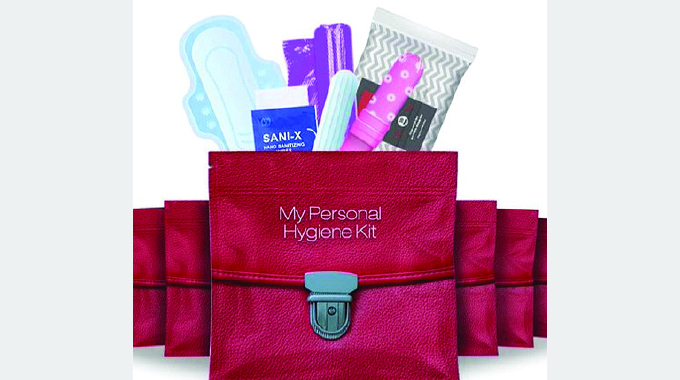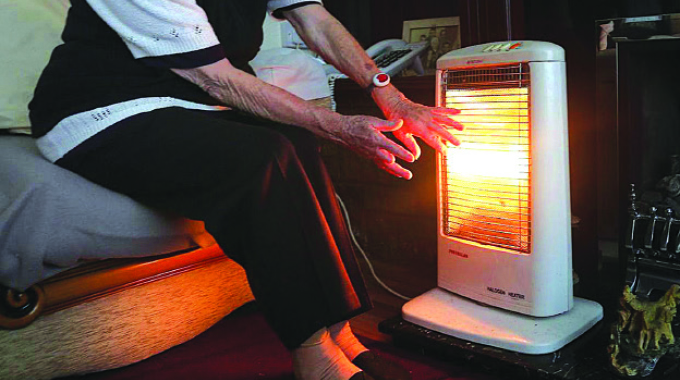Accommodating the ‘IT’ experience in communal space

Fadzayi Maposah-Correspondent
I consider myself to be a very communal person having experienced it from a young age.
My parents, my father, WaMambo, and my mother, Ma Ncube, always opened our home to family and kinsmen from far and wide.
When we stayed in Kadoma, we had many visitors because the city is less than 100km from our rural home in Sanyati.
Our kinsmen came to the city for many things. Others came because they had been referred from kuMission – that’s how we refer to Sanyati Baptist Mission Hospital.
Some came because they were seeking employment and needed a place to sleep as they spent the day job hunting.
Others because they needed to be at the bank very early in the morning. There were still others who missed the bus and needed a place for the night.
Since WaMambo worked in the central business district, it was easier for all our kinsmen to connect even if they had no idea where we lived.
They simply went to WaMambo’s workplace and he would bring them home.
As long as WaMambo was local, he would be at home at lunchtime.
It was only when I was older that I realised that my father did not just come home for the physical food, but the emotional food too.
It was his chance to connect with his spouse and his children, but mainly with MaNcube. When he came back at the end of the day, they would pick up from where they left off earlier.
We were not rich materially when we grew up. Our parents gave us a comfortable life. We did not have too much neither did we lack.
Those who came to the home were assured of a comfortable place to sleep, a hot filling meal or meals, good company and even gifts when they were leaving. The gifts could be hand down clothes or even groceries. MaNcube is a giver even up to now.
In all that I had my “own” space. I never had my own bedroom growing up, I shared a room with my sisters Nyari and Tendi and much later on Gamu joined the squad.
When female relatives or kinsmen came, we either accommodated them or some of us, depending on the number, had to relocate to the lounge. Even in that context, I simply had own space.
Then boarding school. At boarding school, most space was communal. The own space would be around one’s bed and locker.
In shared spaces, I respect people`s spaces. During the times that I shared offices, I always respected people’s space. It could be just the desk, chair, the cabinet.
After the Chihwa children had finished cleaning up, they joined us briefly for devotion and prayers led by Chihwa. The daughters invited me to the bedroom that they shared. I was about to go when the two boys said they also wanted me to go to their room.
So I told the girls that they could wait for me in their room while I went to the boys’ room. When I got to the room, I understood why they had wanted me to see their room.
It was impeccable! The two young Chihwas then explained that they had changed the set-up of the room so that they could accommodate the desk that they had recently received from the girls.
I commended the orderliness of the room and encouraged them to maintain the high standard. They smiled and said because their parents, their father, mainly conducted unannounced room inspections and when the rooms were classified as a pig sty, privileges were withdrawn!
I said I supported withdrawal of privileges when rooms were dirty and people did not do what they were supposed to.
The two girls were seated on the double bed that they shared when I got to their room. Each girl has a side, with each half of the room speaking to the girl’s interests.
Like the boys’ room, it was very neat. I once again told them that I was excited to have been invited to the coming of age dinner, they smiled.
Then with a lot of excitement, the oldest rushed to her drawer and brought the “it” experience kit that she had received from her parents. I watched in awe as she “unpacked” what was in the kit.
There was brand new underwear. The young sister with a smile said the underwear had Mai Chihwa’s name all over it.
I asked why and the older sister responded that their mother always said there was no reason why one should wear dull underwear just because one feared staining it.
The underwear that had dots and flowers was bright coloured. Just by looking at the underwear, one’s mood was bound to become brightened!
In the kit also were two packs of sanitary pads, a pack of wipes, cut pieces of newspaper in a small plastic bag and a small case in which to carry the sanitary pads when going to school.
When I asked what the pieces of newspaper were for, it was the younger sister who said for wrapping the used sanitary pad before throwing it into the sanitary bin at school in case there were no plastic bags attached to the bin.
Mai Chihwa had emphasised that no “naked” pads were to be thrown away. A pad had to be “properly” dressed then thrown away.
I asked the elder sister if she was enjoying her privacy in the communal space while on the “it” experience.
She said that she had no complaints yet and then started laughing when her sister bent her head in protest, adding that her room mate was accommodating the “it” experience well.
After reading the best wishes card that the younger sister had made for her sister, I left the room to bid the parents farewell and go back home after a well spent evening loaded with many take away lessons. The little things matter!









Comments